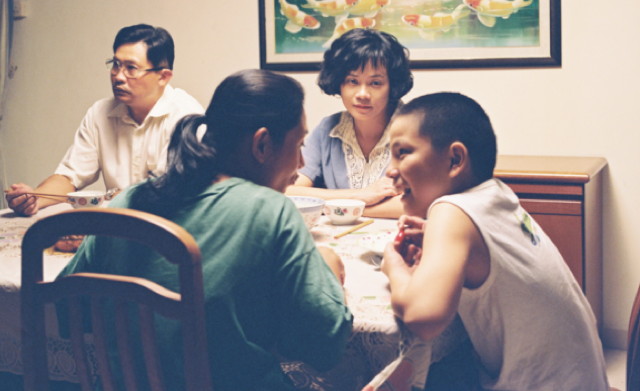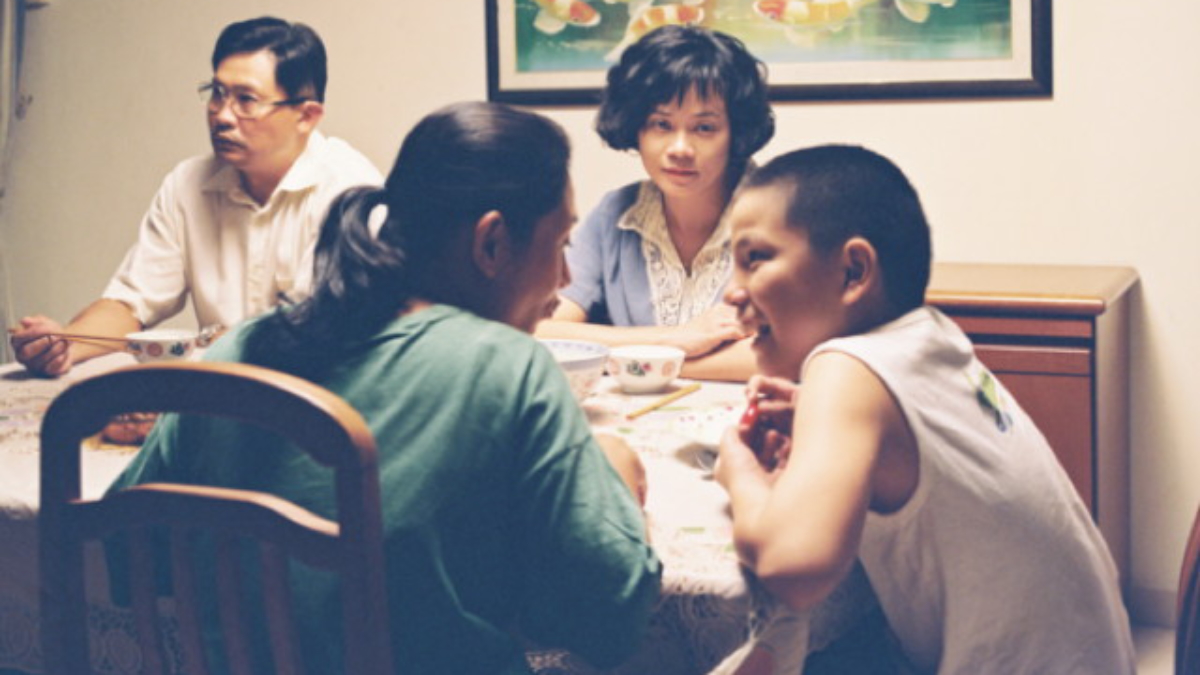Review: ILO ILO (2013)
Dir. Anthony Chen
With Koh Jia Ler, Yeo Yann Yann, Angeli Bayani, and Tian Wen Chen
by Pang-Chieh Ho
Set in an economic crisis-stricken Singapore in the 1990s, ILO ILO is a tender study of the permutations and difficulties a family unit has to withstand in the face of economic stabilities. The beginning of ILO ILO quickly shows us a less-than-harmonious picture of the family constituted by Teck, the father, and Hwee Leng, the mother, and their only son, Jiale. With both of the parents stressed about keeping their jobs and maintaining the household, the family decides to hire Teresa, a Filipino maid as a babysitter and maid.
[youtube]https://www.youtube.com/watch?v=-HqQNvcNTGU[/youtube]One of the primary dilemmas that is faced by the family in ILO ILO is that both parents, too engrossed in keeping their jobs or finding one, never seem to have enough time to properly care for their child or one another. The direct English translation of the Mandarin title of the film is “FATHER AND MOTHER ARE NOT HOME,” and throughout the film, the parents of the family unit struggle to be present at the house, both physically and emotionally. While the common solution to the predicament of having two busy working parents in Asian societies is to have the elder generation take care of the child, this solution is rendered unavailable at the beginning of the film, as the grandfather of family has died some time before the story starts in the film. The grandfather’s absence therefore introduces the arrival of Teresa into the lives of the Singaporean family.
The interactions between Teresa and the family that hire her are established as fraught at the very beginning. Upon her arrival, Hwee Leng, the mother of the family, immediately asks to keep Teresa’s passport to ensure that Teresa does not run away. Jiale, the son and Teresa’s main subject of care, spurns her and makes several attempts to drive Teresa away. However, Teresa and Jiale eventually bond in the middle of the film when Jiale fractures his hand and his physical encumbrance leads to the two becoming closer, as Jiale gradually allows Teresa to take care of him. The film then deftly uses the strengthened ties between Teresa and Jiale to explore the contradictions that arise within a family that now seems to have two mothers, Hwee Leng and Teresa. Hwee Leng’s jealousy of Jiale’s fondness for Teresa drives a wedge into the employer-employee relationship, and leads to Hwee Leng’s growing distrust of Teresa. The awkwardness of Teresa’s position is demonstrated in a large family gathering scene that forces Teresa to eat by herself outside of the room because of the deficiency of seats. While she lives in close spatial proximity with her employer family, Teresa is never considered as a veritable member of the family, a fact that is apologetically addressed by Teck, the father, and more bluntly put forth by Hwee Leng. ILO ILO nonetheless imparts more ambiguity to Teresa’s position within the family by having Jiale notice Teresa’s exclusion from the family table and subsequently decide to join her and keep her company, a sight that troubles Hwee Leng. If both Hwee Leng and Teck have entertained anxieties in regard to their roles in their working environments, this is a moment in the film where the unease spreads to the core of the family and the family members themselves feel displaced from their familial roles.

The Asian economic crisis in 1997 was a crisis that struck many Asian nations, including Singapore. It left in its wake a brief economic recession within Singapore as well as a general atmosphere of anxiety and uncertainty. Within the film, the economic crisis serves more than as a backdrop and it can be seen as an active agent that precipitates the tension within the family. Also, as a film that examines the failing and shifting relationships between family members and an “outsider,” ILO ILO succeeds in dealing with its subject matter with a balanced representation of each character’s emotional states. While it would have been easy to portray Hwee Leng in a villainous light, the film counteracts this tendency by showing the strains Hwee Leng has to endure in her working environment and her vulnerability as she falters in regaining faith in her role as a working mother and wife. The evenly distributed focus towards depicting the pains and plights of every character prevents ILO ILO from being a dichotomized tale of victimized employees versus exploitative employers. It is, instead, a story of a family struggling to deal with the aftereffects of economic recession and the complications of incorporating an outsider into the nuclear family unit.
ILO ILO’s merits thus lie in the fact that instead of pointing an accusing finger at one particular character, you sympathize with all of them. You emphasize with Teck’s despondency at losing his job and having to settle for a post as a night guard, a demotion from his previous line of work. You feel pity for Hwee Leng and her anxiety from balancing the demands of her job with the demands of being a mother. You understand Jiale’s loneliness, his desire for attention, and the pang he experiences when his classmate denies the emotional ties between Jiale and Teresa by dismissing their relationship as merely an economically-driven employer-employee relationship. And lastly, you sympathize with Teresa’s struggles as she tries to navigate her life in a foreign nation and her position as someone close to but never a member of the family. Characters all incite empathy, despite the fact that they are embedded in different places within the societal matrix because of their nationality, gender, and class. What is perhaps best about this film is that it acknowledges the differences in power that each character possesses and the inherent inequalities within their relationships while it strives to nurture within its audience a more quiet and humanistic understanding of each of them.
ILO ILO opens at Film Society Lincoln Center (select screenings attended by the director!) and Cinema Village on Friday, April 4th.
Pang-Chieh Ho graduated from the Foreign Languages and Literature Department in National Taiwan University. She is currently a student in the Cinema Studies Department of New York University. Her interests are in East Asian cinema, urban studies, and gender and sexuality.

